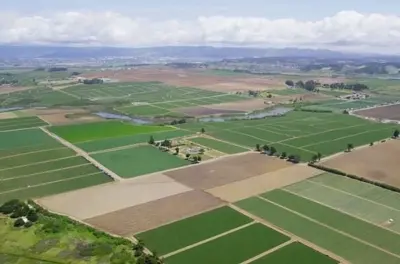Some of the big companies and investors who are more willing to invest in this area are:International investment companies such as Blackstone Group, Cargill, Archer Daniels Midland (ADM), Bunge Limited, Louis Dreyfus Company and Glencore are active in investing in agricultural land in the Middle East and West Asia

Investors in the agriculture sector of the Middle east and West asia invest in the lands of this region for several reasons . The Middle East and West Asia have fertile soils and rich water resources in some areas. These conditions can lead to the production of agricultural products with high quality and yield, which attracts investors to these areas. Population is increasing and global Food needs are increasing. By producing agricultural products in these regions, investors intend to help meet global food needs and also to reach large wholesale markets such as Europe, Asia and the Middle East.
Trade policies can directly affect the demand and supply of agricultural products in international markets. Changes in trade policies such as tariffs, import restrictions, or export incentives can affect export markets and overshadow investors' decisions about investing in farmland. The basic development of the agricultural industry includes infrastructure such as irrigation, transportation, agricultural land, agricultural technology, and related education. The improvement of these infrastructures and the fundamental development of the agricultural industry can increase the attractiveness of investing in agricultural land. Investors are interested in investing in areas that have suitable infrastructure for agricultural production and access to water resources and fertile soil.
Some countries are trying to ensure their food security and reduce dependence on agricultural product imports and strengthen domestic production. Investing in arable land in the Middle East and West Asia can help these countries get closer to food self-sufficiency. In the Middle East and West Asia, a large number of companies and investors, large and small, are active in the field of investment in agricultural land. Some of the big companies and investors who are more willing to invest in this area are:
- International investment companies such as Blackstone Group, Cargill, Archer Daniels Midland (ADM), Bunge Limited, Louis Dreyfus Company and Glencore are active in investing in agricultural land in the Middle East and West Asia.
- Some major agricultural investment funds and investors, such as Hancock Agricultural Investment Group, TIAA-CREF, and Nuveen, operate in this region.
- Some countries, including China, Saudi Arabia, the UAE, and Qatar, have considered investing in arable land in the Middle East and West Asia as part of their investment strategies.
- Major agricultural companies such as ADM, Cargill, Bunge Limited and Wilmar International are interested in investing in agricultural land in this region.
- In this region, local investors and large companies related to the agricultural industry also play an important role in investing in agricultural land.
Investors are looking for opportunities to take advantage of new technologies and agricultural innovations. The Middle East and West Asia are leaders in some areas such as smart agriculture, drip irrigation and managed agriculture, and these positions can attract investors. Some countries in the region encourage investment in agricultural land through financial facilities, financial benefits and legal protection. These encouraging government measures can attract investors to agricultural land in these areas.
Meeting the needs of the market can play an important role in investment decisions in agricultural land. Market needs related to the demand for agricultural products can be affected by various factors, including demographic changes, urbanization growth, changes in food consumption patterns, changes in lifestyles, and increasing consumer awareness about food. Investors, taking into account these needs and market changes, can help adjust the production and development of the agricultural industry to meet these needs and, as a result, influence investment in agricultural land.
Other factors such as climate change, trade policies, fundamental development of the agricultural industry and market needs can also be influential in determining the willingness of investors to invest in this region. West Asia is facing climate change problems that can have a significant impact on the agricultural industry. Increase in temperature, decrease in rainfall, droughts and changes in rainfall patterns can lead to fluctuations in the production of agricultural products. Due to these changes, investors may be less inclined to invest in agricultural land or to more climate-resilient agricultural methods.



